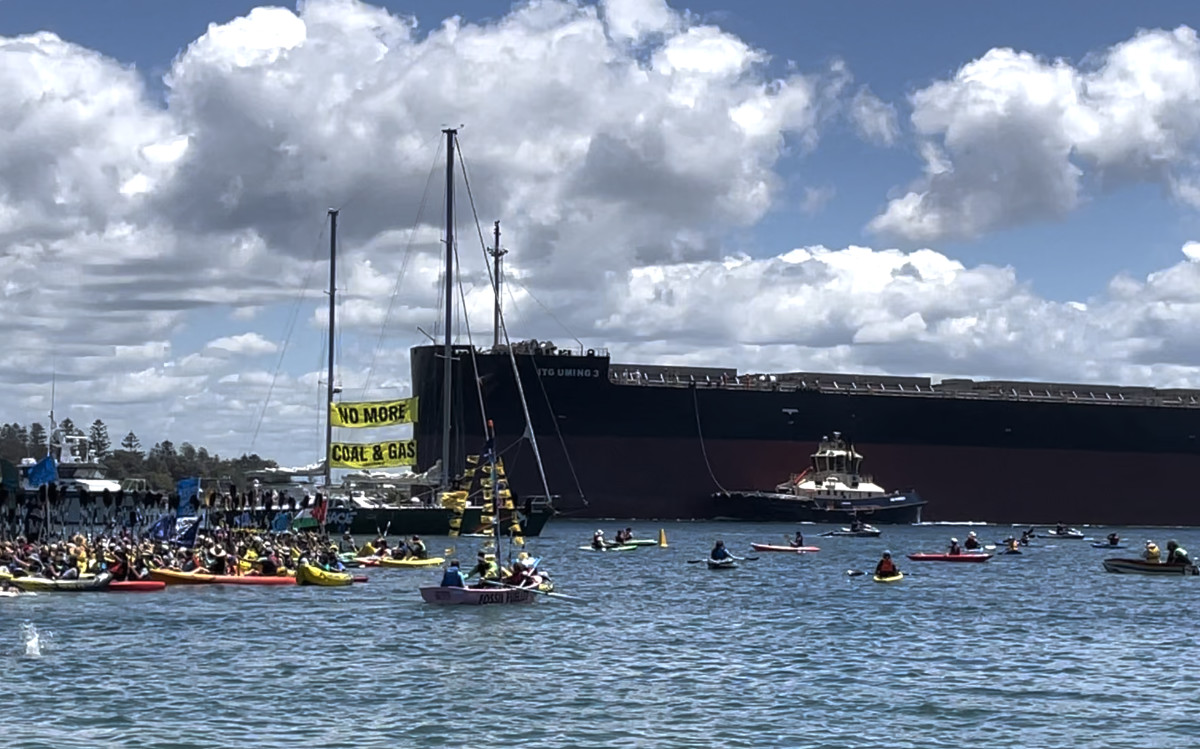
Rising Tide Blockade shows what people power looks like
Extinction Rebellion Australia, 29 Nov 2024
An estimated 7,000 people came together in November at the Rising Tide People’s Blockade in the Port of Newcastle and the Canberra wave that followed in the largest civil disobedience action in Australian history. The message was TAX COAL, FUND NEW JOBS
Government and police attempts to crush the event didn't stop activists who travelled across the country to join locals from the Hunter Valley at the world's largest coal port. Over the next days, thousands gathered on the beach to support protesters in kayaks and canoes and other small craft. One gigantic coal ship was forced to do a U-turn before eventually proceeding down the shipping channel. See Large bulk carrier fails to scare off protesters in world's largest coal port at Newcastle.
Kayakers and other small craft stayed on water for over 50 hours in an overnight vigil on Friday night. Each day thousands on the beach chanted and danced. A huge human sign was created demanding ‘Tax Coal, Fund New Jobs'.
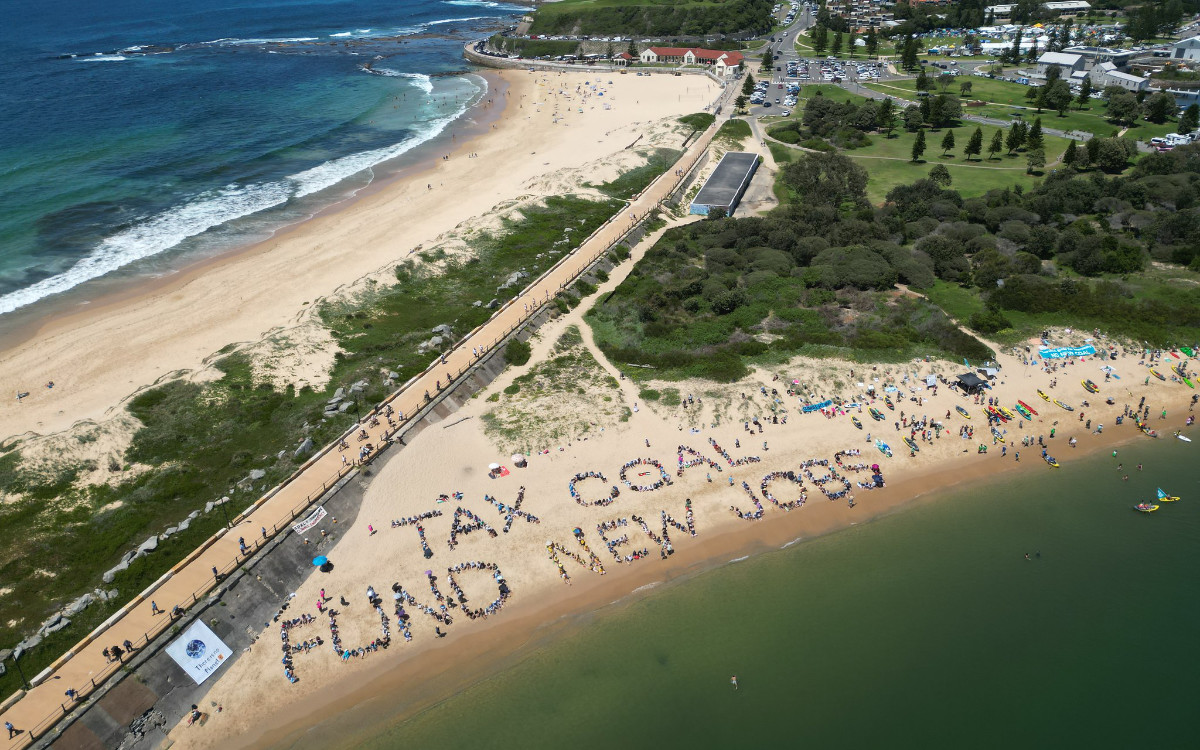
Water-based actions were supported by thousands of volunteers, both on the beach and in the base camp, in a logistical feat that is a great credit to Rising Tide organisers. A wide variety of groups including Extinction Rebellion, Knitting Nannas Against Gas, School Strike 4 Climate contributed volunteers to take care of practicalities such as kitchen duties, general marshalling and kayak launching. Other support came from Rising Tide legal observers, arrestee support, lawyers, community care workers and the media team.
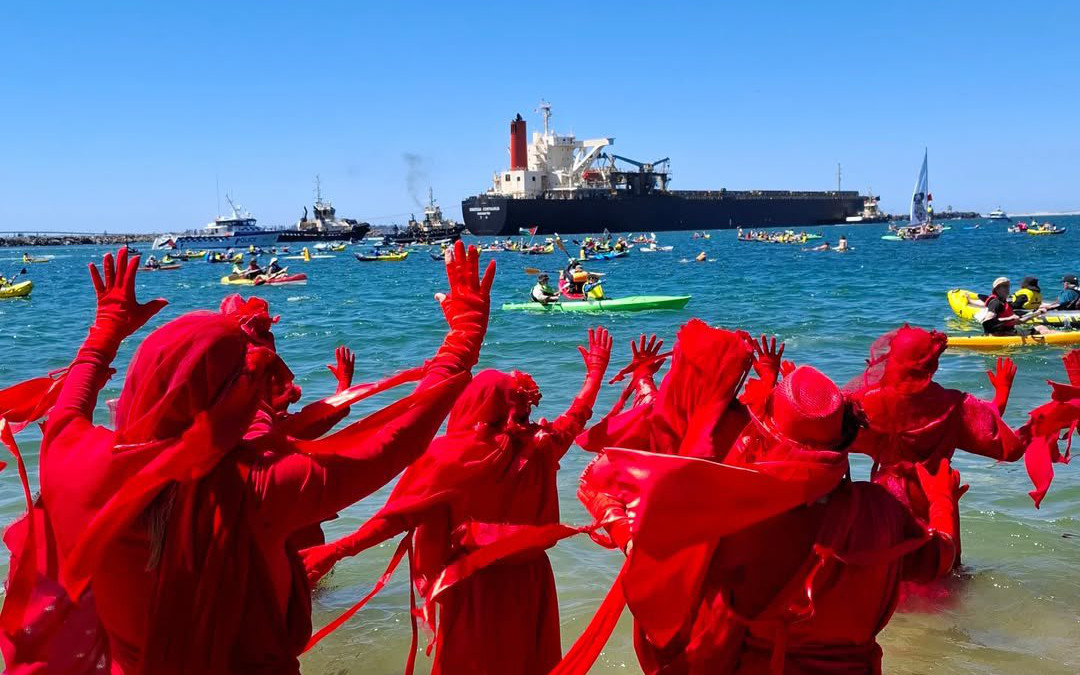
Affinity Groups and Spokescouncils facilitated the communication and decision-making by consensus, extending the training program in principles of civil disobedience that Rising Tide had been conducting during the year. Volunteers described the event preparation and actions during the Blockade as strenuous but also joyful and uplifting. The T shirt design by First Dog on the Moon captured some of the spirit of the event - also see Live at the Port of Newcastle, it’s aquatic ecolarrikins vs gigantic fossil fuel death ships.
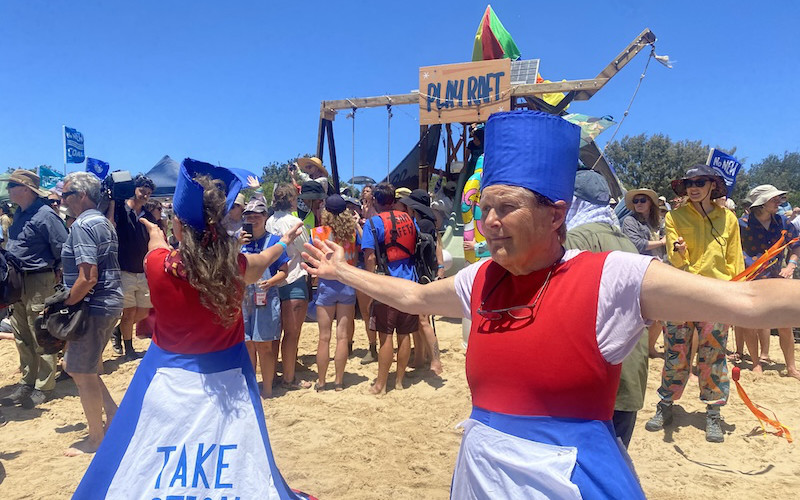
The land-based "protestival" included a First Nations welcome on Friday morning. There were live music events in the daytime and evenings, including thrilling sets by John Butler (of the John Butler Trio) and Midnight Oil's Peter Garrett and Martin Rotsey. Garrett asked the audience “Is the real threat to the Hunter region a group of citizens exercising their democratic rights, or in continuing to export the materials that will burn the world up in a furnace?"
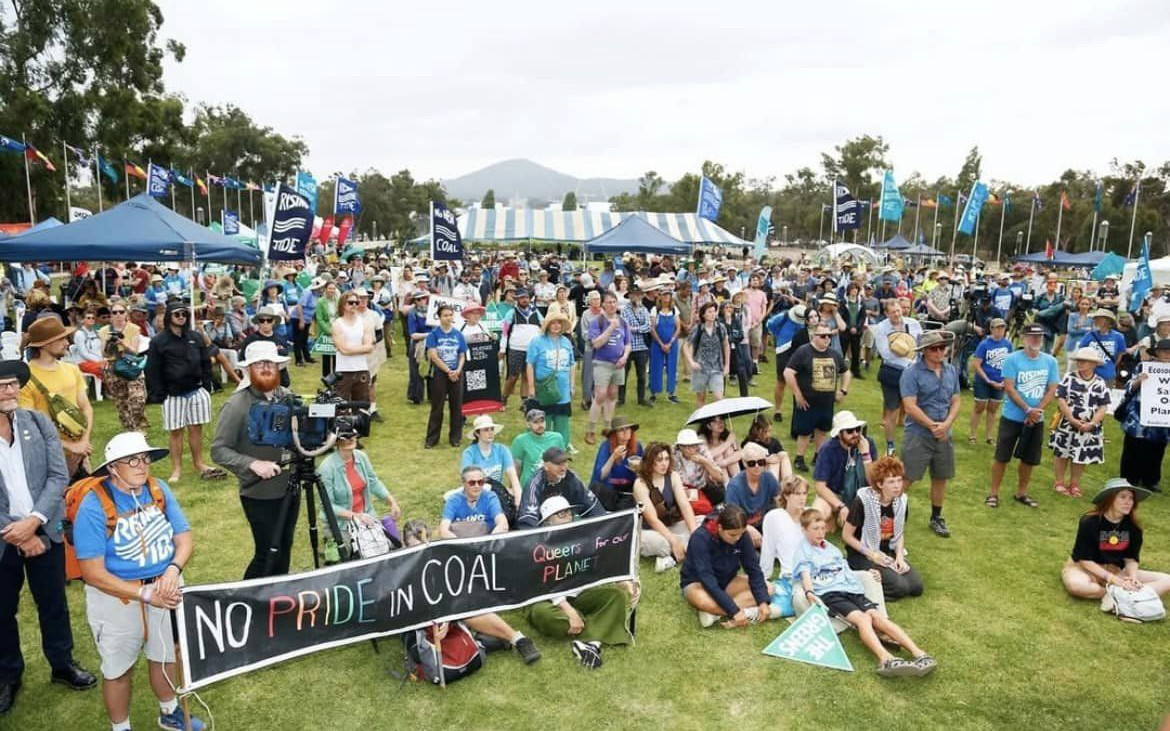
Many obstacles had been put in way of the Rising Tide Blockade, before it even began. Just before the scheduled start date, the NSW government issued an exclusion zone for Newcastle Harbour in a move intended to crush the planned event.
Rising Tide called for NSW Premier Chris Minns to rescind the decision, and challenged the department's interpretation of the Marine Safety Act. A mere hour before the zone was to come into force, Justice Sarah McNaughton quashed the order. These efforts by government and police are consistent with a crackdown on protesting that's been seen across the country. According to a June report by the Human Rights Law Centre, 49 laws that erode the right to protest have been introduced by federal and state governments over the past two decades. The report author, senior lawyer David Mejia-Canales, says that the restriction on protests is often wrapped up in "dubious safety concerns”
NSW has introduced the most anti-protest laws among states, with climate protesters disproportionately affected.
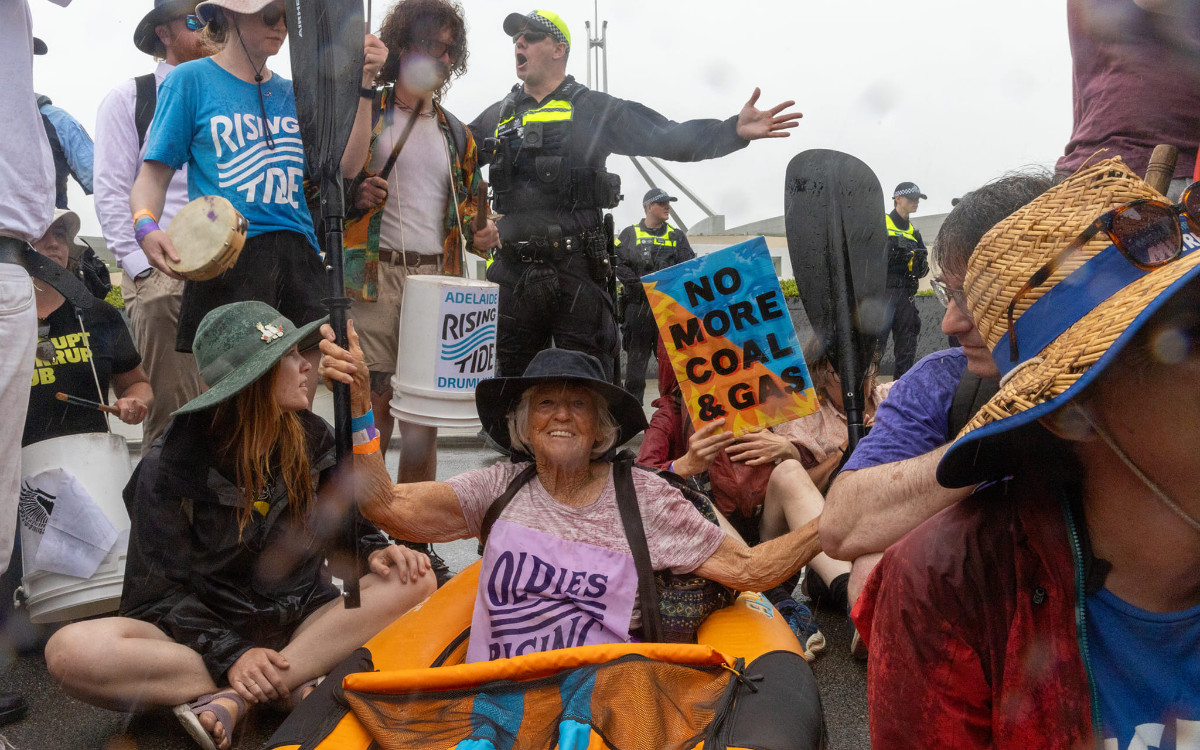
So when hundreds of climate activists waded into the water at the Port of Newcastle with kayaks and rafts, with police boats drifting in the distance, it was unclear what would happen next. By the weekend police had arrested 156 adults and 14 young people; all nonviolent protesters who paddled out towards the shipping channel.
Wendy Bacon for Michael West Media reported that: "138 of those arrested have been charged under S214A of the NSW Crimes Act for disrupting a major facility, which carries up to two years in prison and $22,000 maximum fines. This section is part of the NSW government regime of ‘anti-protest’ laws designed to deter movements such as Rising Tide.
"The rest of the protesters have been charged under the Marine Safety Act which police used against 109 protesters arrested last year. Even if found guilty, these people are likely to only receive minor penalties. Those arrested in 2023 mostly received small fines, good behaviour bonds and had no conviction recorded."
A police statement claimed there were "serious safety risks" and that dozens of people needed to be retrieved from the water during arrests or assisted to return to shore. However, a number of protesters insisted that the police themselves had created safety issues by grabbing and removing their paddles, leaving them stranded in the water in their canoe or kayak.
After the blockade actions at the world’s largest coal port, Rising Tide moved to Ngunawal country for the Canberra Wave and was generously hosted by the iconic Aboriginal Tent Embassy. Protesters disrupted the last sitting week of Federal Parliament, demanding a meeting with Prime Minister Anthony Albanese about coal projects.
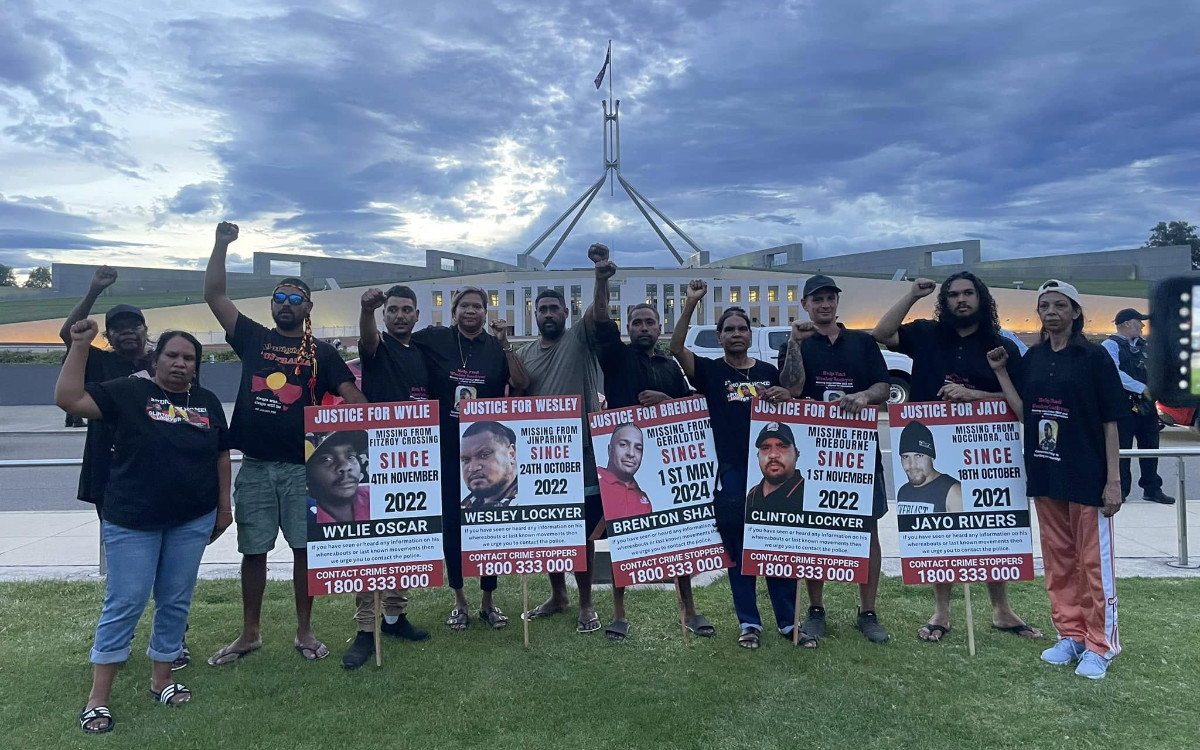
Aboriginal Tent Embassy hosts highlight the search for missing people, including Clinton Lockyer, who went missing from Roebourne WA in October 2022. Please check the link and donate if you can.
On Wednesday a group of Rising Tide protesters occupied the foyer and the road in front of Parliament House, demanding answers from Albanese: WHEN WILL YOU STOP NEW COAL AND GAS.
Wendy Bacon of Michael West Media reported that twenty-four people were arrested. Two spent the night in custody; others were released on the condition that they do not go near the Australian parliamentary precinct for two years. This ruling is bound to be challenged in court as anti-democratic and amounting to extra-judicial punishment.

The federal Australian Labor Party has approved 28 new coal and gas export projects since coming to office. This is not what we want or need - Australia is already one of the world’s largest exporters of coal and gas. The emissions from these exports dwarf our domestic climate pollution. The Port of Newcastle is the biggest coal port in the world, and Australia’s single largest contributor to the climate crisis.
In a telling interview with Sky News, Rising Tide Media Spokesperson Zack Schofield pointed out that Australia's export trading partners such as China, Korea and Japan are moving to renewables and domestic energy production. Zack said: "So what do we tell Hunter workers, what do we tell people in Singleton and Musselbrook when their own port says that their export industry will collapse in the next ten years? Are we going to fund those communities to transition to alternate industries. I think we should."
"We need to actively invest in the industries of the future. If we're not, then we are setting ourselves up for failure. Why wouldn't we want to invest in emerging energy production, when that is the future that the world is heading to?"
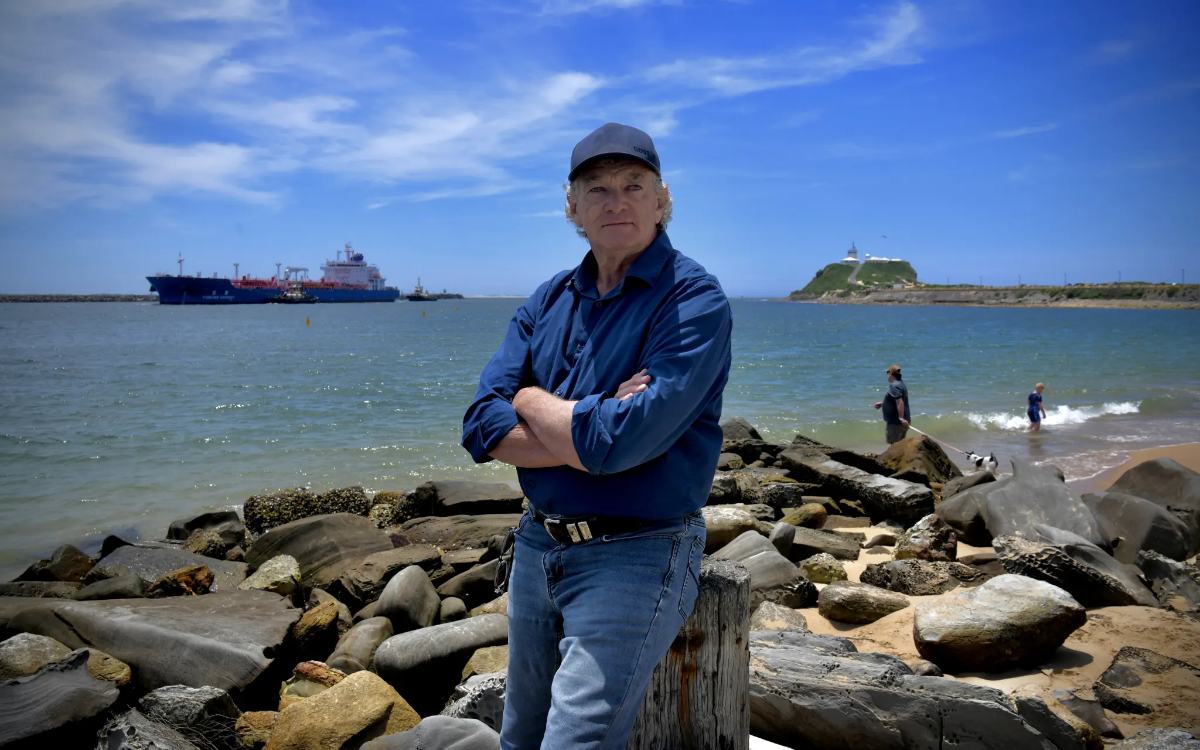
The Sydney Morning Herald spoke to Grant Howard, who has been a coal miner since he left school in Wollongong 44 years ago. At the weekend he was arrested at the Rising Tide protest. Grant is deeply concerned about climate change and wants coal miners to be at the heart of the energy transition. Otherwise, he fears, mines will close suddenly and workers will be left in the lurch.
While the government continues to look out for the profits of coal and gas corporations and billionaires, Rising Tide and other climate activists are advocating for a tax on corporations to fund a just transition for workers like Grant in fossil fuel industries.
The Rising Tide Blockade showed what people power looks like – grandparents, workers, students, doctors, First Nations people, and families united in the fight for our future.
We won't stand by while new coal and gas projects fuel the climate crisis that's devastating communities across Australia and the Pacific.
Rising Tide Demands:
- Immediately cancel all new fossil fuel projects
- Tax fossil fuel export profits at 78% to fund community and industrial transition, and pay for climate loss and damage
- End all coal exports from Newcastle – the world’s largest coal port – by 2030